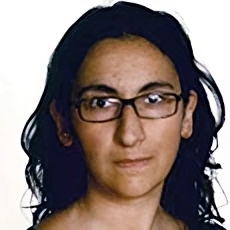Fundamentals of Economics
Fundamentals of Economics
The course introduces the student to both microeconomic and macroeconomic issues.
Introduction to Management Engineering Series
This MOOC is part of the Introduction to Management Engineering series, which is designed to introduce prospective master students and people interested in managerial disciplines into the key fundamentals of Management Engineering. Through an analytical and engineering approach, the series provides basic concepts and language in the areas of Strategy, Economics, Financial Accounting, Organization, and Operations Management.
The series is the result of a collaborative design between METID, the unit of Politecnico di Milano devoted to teaching and learning innovation, and the Study Course in Management Engineering.
See the full seriesCourse description
The purpose of this course is to provide the student with the theoretical framework and the basic tools needed to understand and to give a critical assessment of the behavior of economic agents (consumers, producers, institutions) in a market economy, both in a microeconomic and in a macroeconomic perspective. This allows to better understand the economic context and to make appropriate economic decisions.
This introduction to Economics provides a useful basis for a number of other courses, also in different subjects, in which economic choices by firms, consumers, policy-makers are discussed.
The first part of the course deals with Microeconomics, that is the study of individual economic behavior of consumers and firms, and how they determine the market equilibrium under different forms of competition. This part is based on online open access course given at Massachusetts Institute of Technology (USA) by prof. Jonathan Gruber (14.01SC Principles of Microeconomics. Fall 2011. Massachusetts Institute of Technology: MIT OpenCourseWare. License: Creative Commons BY-NC-SA) and adapted by the course faculty.
The second part of the course covers the basics of Macroeconomics, that is the study of the determinants of a country’s Gross Domestic Product, employment and income as whole, and of the fluctuations experienced by economic systems. This part of the course deals also with the economic policies, both fiscal and monetary policies, that can be put in place to influence the overall economic equilibrium of a country.
The first part of the course, Microeconomics, was taken from an online open access course given at MIT (USA) by prof. Jonathan Gruber and adapted by prof. Anna Florio.
The second part, Macroeconomics, is presented by prof. Lucia Tajoli and prof. Fabio Sdogati. To better understand the debate on economic policies there is also a short video featuring prof. Paul Krugman, a well-known economic scholar, debating on austerity with policy-makers, and a comment follows the video.
To complete their understanding of the economic models presented in the course and their applications to the real world, we encourage students to look at one of the textbooks suggested in the bibliography.
The course is divided into six weeks and it will cover the following contents:
- Microeconomies
- Supply and Demand
- Consumer Theory
- Producer Theory
- Competition
- Monopoly and Oligopoly
- Macroeconomics
Total workload of the course: 25 hours
This MOOC is provided by Politecnico di Milano.
Intended Learning Outcomes
By actively participating in this MOOC, you will be able to:
- Outline what demand and supply curves and market equilibrium are.
- Recognise how equilibrium changes as curves shift and what the elasticity of demand is.
- Recall how the consumer chooses goods to consume according to their preferences and budget constraint.
- Recognize how the firm decides which inputs to employ to produce a given quantity of output at minimum cost.
- Outline what production functions, costs, and returns to scale are.
- Recognise what monopoly and oligopoly are, and how firms in these markets maximize their profits.
- Outline what GDP, basic macroeconomic concepts, instruments and goals of monetary and fiscal policies are, and analyse recent monetary policy during the Great Recession.
In broad terms, the participant will develop the learning outcomes in the areas of: ESCO Skills macroeconomics, microeconomics.
Prerequisites
No formal knowledge is required.
Activities
Over and above consulting the content, in the form of videos and other web-based resources, you will have the opportunity to discuss course topics and to share ideas with your peers in the Forum of this MOOC. The forum of this MOOC is freely accessible and participation is not guided; you can use it to compare yourself with other participants, or to discuss course contents with them.
Assessment
Your final grade for the course will be based on the results of your answers to the assessed quizzes. You have an unlimited number of attempts at each quiz, but you must wait 15 minutes before you can try again. You will have successfully completed the course if you score a total of 60% (or higher) in each of the assessed quizzes.
The maximum score possible for each quiz is given at the beginning of the quiz. You can view your score in the quiz on your last attempt or on the 'Grades' page.
Certificate
You can achieve a certificate in the form of an Open Badge for this course if you reach at least 60% of the total score in each one of the assessed quizzes and complete the final survey.
Once you have completed the required tasks, you will be able to access ‘Get the Open Badge’ and start issuing the badge. Instructions on how to access the badge will be sent to your e-mail address.
The Badge does not confer any academic credit, grade or degree.
Information about fees and access to materials
The course is delivered in online mode and is available free of charge.
Course faculty

Anna Florio
Anna Florio is currently Associate Professor of Economics and Macroeconomics of Finance at the Department of Management, Economics and Industrial Engineering, Politecnico di Milano – Italy. She holds a Laurea from the Università Cattolica del Sacro Cuore of Milan in 1996, a Master of Science from Bocconi University in 1997 and a Ph.D. (Economics) from the Università di Pavia in 2001. Her research interests are in the fields of macroeconomics, monetary economics, applied macroeconomics.

Fabio Sdogati
Fabio Sdogati was born in Ancona (Italy). He holds a Laurea from the University of Roma, and a Master of Science and a Ph.D. (Economics) from the University of Wisconsin-Madison (USA). He has been a Jean Monnet Post-Doctoral Fellow at the European University Institute and an Associate Professor of Monetary Economics at the University of Parma (Italy). Currently he is Professor of International Economics at Politecnico di Milano and Director of Educational Public Programs at MIP Business School.
His research interest range from the effects of exchange rate fluctuations on international competitiveness of firms, to the effects of international fragmentation of production on comparative advantages.
He acknowledges research support, among others, from the Commission of the European Union, the Italian National Research Council, the Miles Foundation, the Italian Ministry for University and Scientific Research.

Lucia Tajoli
Lucia Tajoli is Professor of Political Economics at the Department of Economics, Management and Industrial Engineering at Politecnico di Milano. She is also member of the Department Board.
She obtained her Ph.D. in Economics from Bocconi University in 1994.
At Politecnico di Milano, she teaches courses in Economics, International Economics and International Markets and European Institutions at the undergraduate and graduate levels. She had teaching appointments in International Economics at Bocconi University, at Sant'Anna School of Superior Studies in Pisa, and at the Ford School of Public Policy of the University of Michigan.
Additional affiliations include the Istituto per gli Studi di Politica Internazionale (ISPI) in Milan, as Senior Research Fellow on European Studies, the Italian Trade Study Group, the Scientific Committee of the Italian Trade Agency, the Scientific Committee of the European Trade Study Group. She is frequently invited as a speaker and visiting professor in other European universities and institutions, and in international conferences.
Her research activity focuses on theoretical and empirical issues related to international trade, trade policy and economic integration among countries, especially through international fragmentation of production. On these topics, she published about one hundred works on national and international scientific journals, in edited volumes and in working papers collections.
Contact details
If you have any enquiries about the course or if you need technical assistance please contact pok@polimi.it. For further information, see FAQ page.